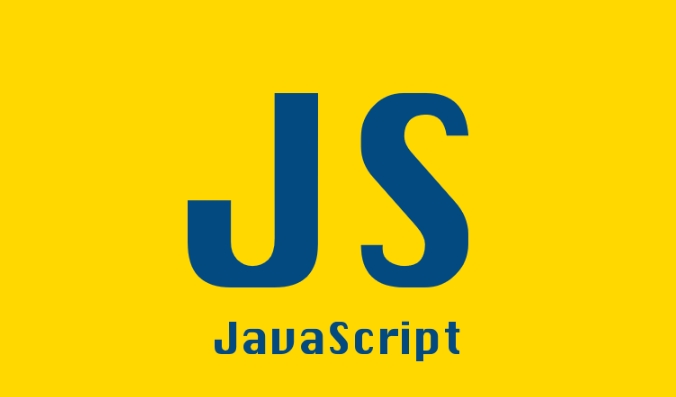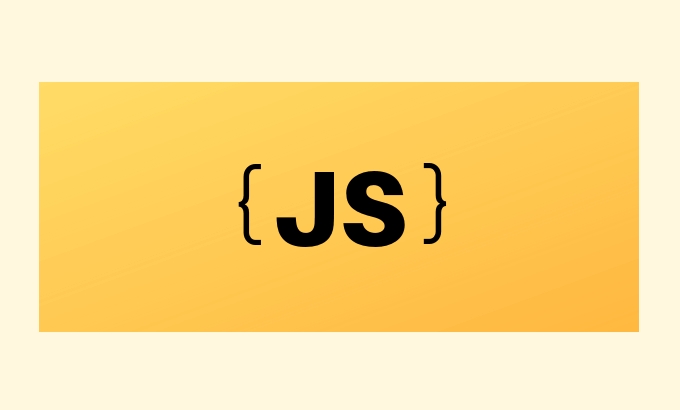Understanding var, let, and const in JavaScript
Jul 12, 2025 am 03:11 AMvar, let, and const in JavaScript have significant differences in scope, variable promotion, and variability. 1. var is the function scope, accessible anywhere within the function; let and const are block-level scopes, accessible only within the code block that declares them. 2. var has variable promotion and is initialized to undefined, while let and const are also promoted, but are in a "temporary dead zone". An error will be reported before the declaration. 3. var can be repeatedly declared and assigned; let cannot be repeatedly declared but can be reassigned; const cannot be repeatedly declared and cannot be reassigned (object or array content can be modified). 4. Const should be used first in actual development. If reassignment is required, use let, and try to avoid using var.

var , let and const in JavaScript seem to be used to declare variables, but their behavior and usage scenarios are actually very different. Many people will use var directly when they first start writing JS, but they encounter problems such as variable improvement and confusion in scope. Understanding the difference between these three keywords can help you write more stable and maintainable code.

1. Variable scope: block-level scope vs function scope
This is one of the most core differences between the three.
-
varis function-scoped: it only works inside the current function, not inside the code block{}. -
letandconstare block-scoped: as long as they are declared in{}, they can only be accessed in that code block.
For example:

if (true) {
var nameVar = 'Tom';
let nameLet = 'Jerry';
}
console.log(nameVar); // Output 'Tom'
console.log(nameLet); // Error: nameLet is not defined As can be seen from the above, the variables declared by var will be "uplifted" to the external scope, while let and const can only be used in the current block.
2. Variable hoisting behavior is different
Variable promotion is a feature of JS, that is, variable declarations will be "moved" to the top of the current scope.

-
varwill be promoted and initialized toundefined. -
letandconstwill also be promoted, but will not be initialized, entering a so-called "temporal dead zone" (TDZ), and an error will be reported when accessing before the declaration.
for example:
console.log(a); // undefined var a = 5; console.log(b); // ReferenceError let b = 10;
So if you try to use variables before let or const declaration, JS throws an error instead of returning undefined like var .
3. Whether it is possible to reassign and redeclare
This is also a factor to consider when choosing which keyword to use.
-
var: You can declare it repeatedly or reassign it. -
let: The declaration cannot be repeated, but the value can be reassigned. -
const: You cannot declare repeatedly, and you cannot reassign values ??(if it is an object or array, the content can be modified).
For example:
var x = 1;
var x = 2; // Legal let y = 1;
let y = 2; // error const z = 1;
z = 2; // Error const obj = { name: 'Alice' };
obj.name = 'Bob'; // Legal, because the content of the object is modified, not the reference address Therefore, when a constant is needed, const is preferred, so as to avoid the problem of accidentally modifying and changing the variable.
4. How to choose in actual development?
Simply put:
- Use
constfirst, unless you are sure that the variable will be reassigned after it is determined. - If a variable needs to be assigned multiple times, use
let. - Try to avoid using
varunless you are maintaining old projects or have special needs.
Some common usage scenarios:
- ? Constant definition: API address, configuration item, etc. →
const - ? Loop counter, status flag →
let - ? It is not recommended to use
varto declare variables
Basically that's it. Although it seems like only a different way of declaring variables, in actual encoding, they affect the scope, life cycle, and maintainability of the variables. Figuring out the difference between them will allow you to write clearer and less buggy JavaScript code.
The above is the detailed content of Understanding var, let, and const in JavaScript. For more information, please follow other related articles on the PHP Chinese website!

Hot AI Tools

Undress AI Tool
Undress images for free

Undresser.AI Undress
AI-powered app for creating realistic nude photos

AI Clothes Remover
Online AI tool for removing clothes from photos.

Clothoff.io
AI clothes remover

Video Face Swap
Swap faces in any video effortlessly with our completely free AI face swap tool!

Hot Article

Hot Tools

Notepad++7.3.1
Easy-to-use and free code editor

SublimeText3 Chinese version
Chinese version, very easy to use

Zend Studio 13.0.1
Powerful PHP integrated development environment

Dreamweaver CS6
Visual web development tools

SublimeText3 Mac version
God-level code editing software (SublimeText3)

Hot Topics
 Solve the 'error: use of undeclared identifier 'variable'' problem in C++ code
Aug 26, 2023 pm 01:46 PM
Solve the 'error: use of undeclared identifier 'variable'' problem in C++ code
Aug 26, 2023 pm 01:46 PM
Solving the "error:useofundeclaredidentifier'variable'" problem in C++ code When programming in C++, we often encounter various errors. One of the common errors is "error:useofundeclaredidentifier'variable'". This error usually means that we are using an undeclared variable in our code. This article will detail
 How to use variables in PHP
May 20, 2023 pm 02:33 PM
How to use variables in PHP
May 20, 2023 pm 02:33 PM
PHP is a very popular web development language that allows developers to create dynamic web applications on the server side. In PHP, a variable is a basic data structure used to store values ??and data. This article will introduce how to use variables in PHP. Basic Syntax of Variables The syntax for declaring variables in PHP is very simple. Variable names begin with a dollar sign ($), followed by the variable name. Variable names can be a combination of letters, numbers, or underscores, but they must begin with a letter or an underscore. For example, the following code declares a name
 How to solve golang error: undeclared name 'x' (cannot refer to unexported name), solution steps
Aug 19, 2023 am 11:01 AM
How to solve golang error: undeclared name 'x' (cannot refer to unexported name), solution steps
Aug 19, 2023 am 11:01 AM
How to solve golang error: undeclaredname'x'(cannotrefertounexportedname), solution steps. During the development process of using Golang, we often encounter various error messages. One of the common errors is "undeclaredname'x'(cannotrefertounexportedname)" which refers to the variable
 Quickly get started with the basic syntax of Golang variable declaration and assignment
Dec 23, 2023 am 08:10 AM
Quickly get started with the basic syntax of Golang variable declaration and assignment
Dec 23, 2023 am 08:10 AM
Quick introduction to the basic syntax overview of Golang variable declaration and assignment: Golang is a statically typed, compiled programming language with excellent performance and development efficiency. In Golang, variable declaration and assignment are one of the basic operations we often use when writing programs. This article will take you quickly into the basic syntax of Golang variable declaration and assignment, and provide specific code examples. Variable declaration: In Golang, we need to use the var keyword to declare a variable and specify the type of the variable. Change
 Difference between `var`, `let`, and `const` declarations in JavaScript
Jul 08, 2025 am 02:21 AM
Difference between `var`, `let`, and `const` declarations in JavaScript
Jul 08, 2025 am 02:21 AM
In JavaScript, the main differences between var, let and const are scope, enhancement behavior, and reassignability. var is the function scope, while let and const are block scope; variables declared by var will be promoted and initialized to undefined, while let and const are promoted but will not be initialized, and access will be errors (temporary dead zone); var and let allow reassignment, while const does not allow reassignment, but the content of the mutable object can be modified. When using it, use const first. Use let when reassigning values ??to avoid using var.
 Differences Between var, let, and const Declarations in JavaScript
Jul 06, 2025 am 12:58 AM
Differences Between var, let, and const Declarations in JavaScript
Jul 06, 2025 am 12:58 AM
In JavaScript, var is the function scope, and let and const are block scopes; var allows variables to be promoted and initialized to undefined, while let and const are promoted but not initialized, and access will be errors; variables declared by const cannot be reassigned, but the contents of objects or arrays are variable. Specifically: 1.var is the function scope, and if declared outside the function, it is the global scope; 2.let and const are block scopes, which are only valid in the declared block; 3.var and let allow reassignment, const does not allow reassignment, but the object or array content they refer to can be modified; 4.var variables will be promoted and initialized to undefined, let
 Understanding var, let, and const in JavaScript
Jul 12, 2025 am 03:11 AM
Understanding var, let, and const in JavaScript
Jul 12, 2025 am 03:11 AM
Var, let, and const in JavaScript have significant differences in scope, variable promotion, and variability. 1.var is the function scope, accessible anywhere within the function; let and const are block-level scopes, accessible only within the code block that declares them. 2. Var has variable promotion and is initialized to undefined. Although let and const are also promoted, they are in a "temporary dead zone". An error will be reported before the declaration. 3. Var can be repeatedly declared and assigned; let cannot be repeatedly declared but can be reassigned; const cannot be repeatedly declared and cannot be reassigned (object or array content can be modified). 4. Const should be used first in actual development, if reassignment is required
 The Difference Between `let`, `const`, and `var` Explained in Depth
Jul 27, 2025 am 01:44 AM
The Difference Between `let`, `const`, and `var` Explained in Depth
Jul 27, 2025 am 01:44 AM
constispreferredbydefaultasitpreventsreassignmentandsignalsintentclearly;2.useletwhenreassignmentisneeded,suchasinloopsorchangingstate;3.avoidvarduetoitsfunction-scoping,hoistingissues,andpotentialforbugs;4.letandconstareblock-scopedandhoistedinaTemp






